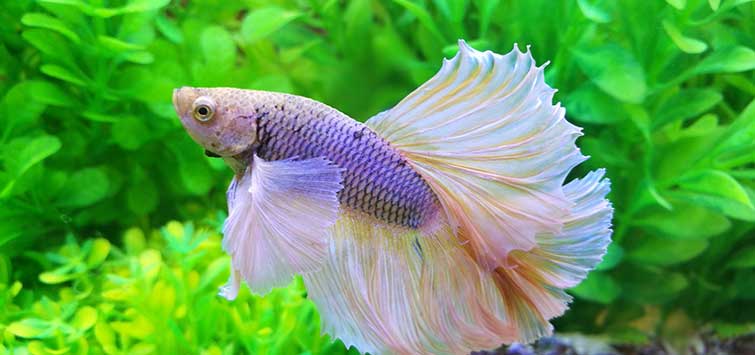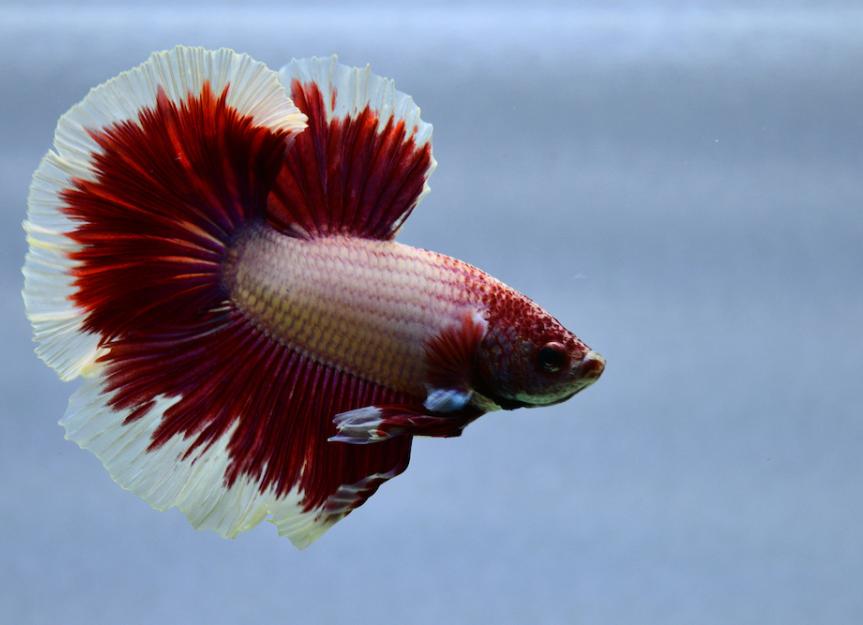The Ultimate Betta Fish Treatment Guide for New Pet Dog Owners
The Ultimate Betta Fish Treatment Guide for New Pet Dog Owners
Blog Article
The Ultimate Guide to Betta Fish Care: Essential Tips for Preserving a Healthy and Thriving Aquarium Atmosphere
Effective Betta fish treatment necessitates a thorough understanding of their one-of-a-kind environmental and physiological needs. Establishing an appropriate fish tank begins with choosing the right tank size and ensuring optimal water problems, which are important for the health and wellness and wellness of your Betta. Understanding proper feeding methods and developing a favorable habitat can considerably affect your fish's vigor and behavior. As you take into consideration these fundamental elements, it ends up being clear that keeping a growing aquarium environment needs focus to detail and recurring commitment. What details approaches will you apply to boost your Betta's high quality of life?
Picking the Right Container
Choosing the ideal container for your Betta fish is crucial to ensuring its health and wellness. Bettas grow in atmospheres that simulate their all-natural environments, which commonly contain calmness, warm waters. A storage tank dimension of a minimum of five gallons is recommended to supply adequate swimming area, as smaller containers can result in stress and anxiety and health issues for these lively fish.
When choosing a storage tank, consider the tank's form and filtration system. A rectangle-shaped container is preferable to a dish, as it offers more surface location for oxygen exchange. In addition, a dependable filtration system is necessary to keep water top quality and reduce the regularity of water changes (betta fish). Nonetheless, it's vital to choose a filter with a gentle flow, as Bettas are not solid swimmers and might have a hard time versus solid currents.
Temperature level regulation is another crucial factor; Bettas prefer water temperature levels between 76 ° F and 82 ° F. Purchasing an excellent heater will certainly make certain that the water stays within this array, advertising a healthy and active way of life for your Betta. Giving proper container designs and concealing places will help lower anxiety and motivate natural actions, better enhancing your Betta's health.
Keeping Water Top Quality
Maintaining optimum water quality is essential for the health and wellness and long life of Betta fish. This requires regular tracking of numerous criteria, consisting of temperature level, pH, ammonia, nitrite, and nitrate levels. Bettas prosper in temperature levels in between 76 ° F and 82 ° F, so maintaining a secure temperature level is essential. Sudden changes can bring about stress and ailment.
The pH level ought to preferably fall between 6.5 and 7.5. Normal testing making use of a trustworthy water testing set can aid guarantee these criteria remain within the suitable ranges. Ammonia and nitrite degrees need to always go to 0 ppm, as also low concentrations can be hazardous to Betta fish. Nitrate degrees ought to be kept under 20 ppm to avoid long-term health issues.
Routine water adjustments are crucial to preserving water high quality. It is advised to alter 25-50% of the storage tank water weekly, relying on the container dimension and equipping levels. Using a top notch water conditioner can help get rid of dangerous chemicals from faucet water, ensuring a risk-free setting. Additionally, incorporating a robust filtration system can help in preserving water clearness and high quality, providing a healthier habitat for your Betta fish.
Suitable Feeding Practices
Giving a balanced diet regimen is important for the health and wellness and vivid coloration of Betta fish, as their nutritional requirements play a considerable function in their general wellness. Betta fish are carnivorous by nature, calling for a diet regimen high in healthy protein. A mix of top notch pellets, icy or live foods such as bloodworms, salt water shrimp, and daphnia can offer the important nutrients they need.
Feed your Betta fish 2 to 3 times a day, using just what they can eat within a couple of mins to protect against overfeeding and preserve water top quality. Overfeeding can bring about weight problems and health issues, consisting of swim bladder illness. It is necessary to monitor their nutritional consumption and adjust part sizes accordingly.
Along with healthy protein, a balanced diet should include minerals and vitamins to advertise optimal health. Take into consideration supplementing their diet regimen with high-grade flakes or pellets specifically developed for Betta fish, as these frequently have necessary ingredients.

Creating an Ideal Habitat

Water top quality is critical; keep a temperature between 76 ° F and 82 ° F, and make sure the pH degree ranges from 6 - betta fish.5 to 7.5. Regular water modifications of 25-50% weekly will certainly help official source maintain toxins at bay and make sure a stable environment
Incorporating plants and hiding areas is critical, as Betta fish are naturally territorial and appreciate having locations to discover and retreat. Live or silk plants, together with caverns and accessories, can create a stimulating atmosphere.

Routine Wellness Checkups
Conducting normal wellness examinations is important for making sure the health of Betta fish, as very early detection of prospective issues can protect against serious wellness troubles. These checkups need to incorporate a comprehensive evaluation of the fish's physical problem, behavior, and ecological elements.
Begin by observing the Betta fish for any kind of indications of distress, such as lethargy, anorexia nervosa, or unusual swimming patterns. Additionally, examine the fins and body for indicators of discoloration, sores, or fin rot, which can suggest infections or parasites. On a regular basis monitoring the water high quality in address the aquarium is equally essential; specifications such as pH, ammonia, nitrite, and nitrate levels should be maintained within optimum ranges to stop stress and anxiety and illness.
Additionally, consider keeping a log of health observations and water high quality tests. This record can promote the identification of fads or recurring concerns. If any abnormalities are found during the checkup, it is important to get in touch with a veterinarian experienced in marine animals. Timely treatment can make a substantial difference in the recovery of your Betta fish, making sure a lengthy and healthy and balanced life in a well-maintained fish tank environment.
Verdict
In final thought, effective Betta fish care rests on producing and keeping an optimum aquarium environment. Secret variables consist of picking a suitably sized container, making sure consistent water high quality, adhering to ideal feeding methods, and developing a habitat that minimizes tension. Normal health check-ups are essential for early discovery of possible problems. By complying with these guidelines, aquarists can advertise the health and vibrancy of Betta fish, eventually leading to a thriving aquatic ecological community.
Report this page